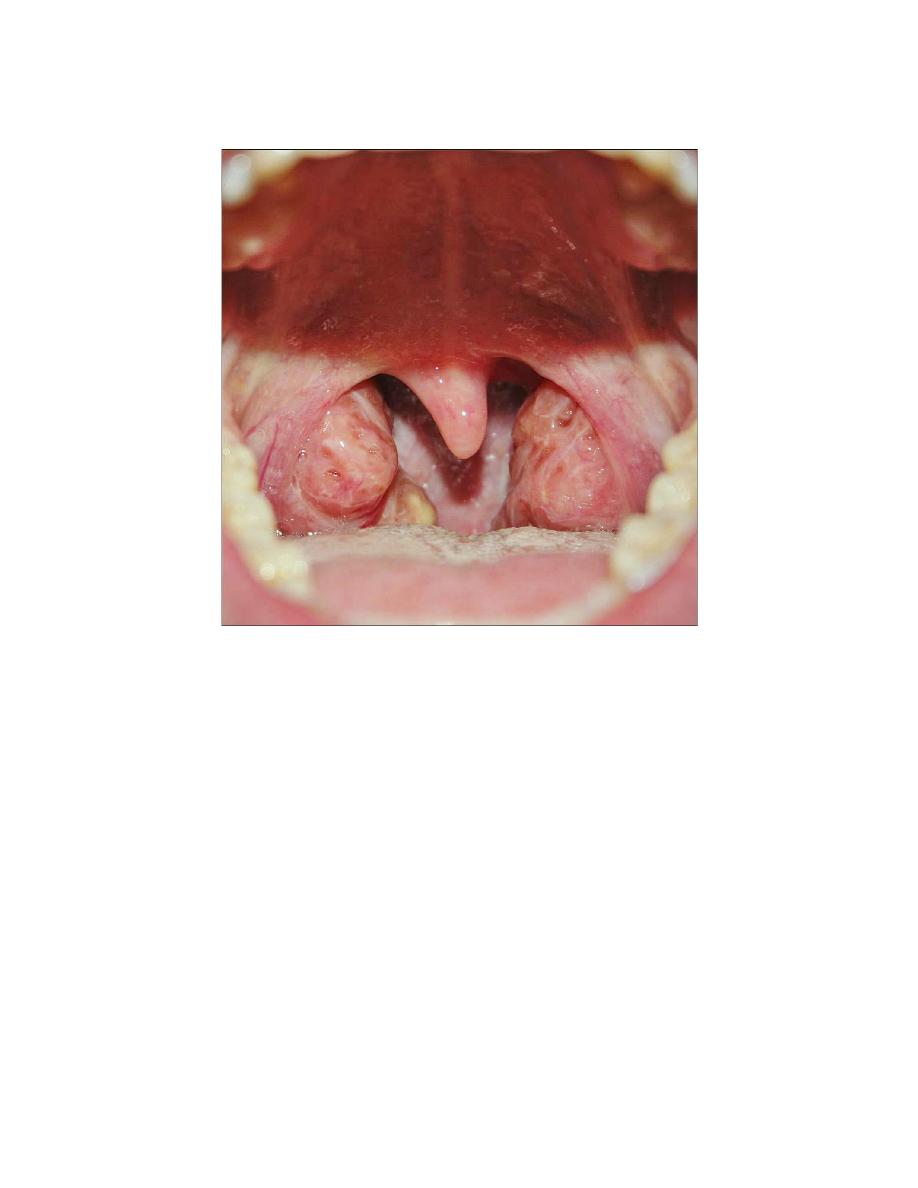
PRIMARY CARE CLERKSHIP PRACTICE EXAMS
1. Practice Exam: https://learnuw.wisc.edu/ (requires log in)
2. Practice OSCE Scenarios (below)
OSCE Scenarios
Introduction
Students: The following practice OSCE scenarios are provided to help prepare you for the end of
the rotation exam.
Although these are not the exact stations that you will encounter, the scenarios are representative
of the types of problems that will be tested. Scenario A contains an-depth assessor checklist to
give you a more detailed guide to the depth of knowledge and skills expected; the remaining
scenarios have a more general list of assessor criteria.
To maximize your learning, we suggest that you:
Practice these scenarios in groups of 3, alternating among Patient, Student, and Assessor
roles.
Complete and review each scenario individually--it will maximize your learning if the
‘Student’ does not view the other roles before the performance.
You may wish to print out the patient information, assessor form and any linked/attached
materials for each scenario.
Limit your time to 10 minutes per scenario. ‘Assessor’ should keep time and give a 2-
minute warning.
Assessor should note questions asked/not asked during the interviews; consider video or
audiotaping to improve recollection and feedback.
For Scenarios B-G, review and discuss the likely components of the assessor checklist.
Give each other honest feedback about performance.

Practice OSCE Scenario A
Student Directions:
A 27-year old woman comes into the office complaining of chest pain.
Obtain a complete history of this complaint.
After obtaining the history to your satisfaction, excuse yourself to go talk with your preceptor.

Practice OSCE Scenario A
Assessor Checklist
Reminder: Keep time and give a 2-minute warning before the 10 minutes is up
Introduces self appropriately
Clarifies reason for visit
Obtains history of chest pain
Onset
Location
Precipitating factors
Alleviating factors
Associated symptoms
Quality
Radiation
Severity
Timing/duration
Identifies risk factors for heart disease
Past medical history
Family history of heart disease or risk factors
Smoking history
Illicit Drug use (especially cocaine)
Hypertension
Lipids/cholesterol
Recent stressors
Exercise tolerance
Focused review of systems
Heartburn/GERD symptoms
Pain with movement/palpation
Medications
Allergies
Summarizes history
Checks for any other concerns or missed information
Overall performance
Communication skills performance
Ask Standardized Patient: How likely would you be to go back to him/her ?

Practice OSCE Scenario A
Patient information
You are a previously healthy 27 year-old woman. You have been having chest discomfort about
twice a week for the last 2 weeks. It is sharp, associated with difficulty getting a deep breath. It
seems to come on mostly at work or when you are driving. It lasts about a half-hour at a time.
You’ve tried Tylenol, Advil, drinking cold water, and antacids without much benefit. It doesn’t
radiate. It is severe enough to interrupt your work but not excruciating. You haven’t had any
heartburn or stomach symptoms. You are concerned that it could be a heart problem.
You smoke 15 cigarettes a day. You’re trying to quit; had cut down from 1 pack/day to ½ pack
but recently went back up to ¾ PPD, ‘probably from stress.’ No drug use. You’ve never been in
the hospital or been told you had any chronic illnesses, never had anything like this before, never
had a cholesterol test.
You are separated from your husband of two years, which is very stressful. You had argued a lot
and just grown apart, no history of domestic violence. You work as a bank supervisor, no
children, not currently sexually active or using birth control. You do aerobics 3-4 times a week
and haven’t had any problems with chest pain or breathing while exercising; ‘Actually that’s
when I feel best.’
Your father had a heart attack last year when he was 64, which is one of the reasons you are
worried about these pains. He also smokes and has high blood pressure. Your mother and older
brother are healthy.
You take a multivitamin daily, no other meds, no allergies.

Practice OSCE Scenario C
Student Information:
A 51-year old man comes into the office for right shoulder pain, progressive over the last 3
weeks, aggravated by his work sanding car hoods.
Perform a focused physical exam of the shoulders, explaining what you are doing, what you
are looking for, and what you are finding as you go.
When you are finished examining the patient, summarize your findings to him and explain that
you will go talk with your preceptor.

Practice OSCE Scenario C
Assessor Criteria
Reminder: Keep time and give a 2-minute warning before the 10 minutes is up
Introduction/agenda
Shoulder exam
Inspection
Palpation
Range of Motion
Strength
Special tests:
Summarizes findings/Checks for any other concerns or missed information
Overall performance, Communication skills, attention to patient comfort

Practice OSCE Scenario C:
Patient Information
You are a 50 year-old man coming in for right shoulder pain for the last 3 weeks. It seems to be
getting worse and worse. About a month ago you began a job in an autobody shop; your primary
job is sanding the paint off of car hoods. It hurts the most when you have to lean over the car and
reach across the hood holding the heavy sander. Ibuprofen helps a bit.
On the exam you will have a slight pain on palpation over the lateral aspect of the shoulder joint.
Abduction is limited actively to about 110 degrees, passively to about 130 degrees. Strength is
good, some pain with supraspinatus testing. Neers and Hawkins maneuvers elicit pain. Otherwise
normal exam.

Practice OSCE Scenario D
Student information
Mr. Jones, a 27 year-old previously healthy man, is seen with a 1-day history of low back pain.
You obtained his history and learned that the pain is non-radiating, worse with bending/twisting,
and not associated with any bladder/bowel incontinence. He has no symptoms or signs of
systemic illness. It started after he helped a friend move some furniture. Aspirin and a hot shower
have helped transiently.
His exam showed moderate right paralumbar muscle tenderness, normal lower extremity strength
and reflexes.
You discussed this with your preceptor, who agrees with you that this seems like an
uncomplicated back muscle strain, and asks you to now present your assessment and plan to
the patient.

Practice OSCE Scenario D
Assessor Criteria
Reminder: Keep time and give a 2-minute warning before the 10 minutes is up
Re-introduces
Gives diagnosis, rationale
Treatment recommendations
Acknowledges concerns, probes, negotiates
Overall performance
Communication skills
Standardized Patient: Would you go back to him/her?

Practice OSCE Scenario D
Patient Information
You are a 27-year old man, self-employed as a carpenter, and have always been ‘healthy as a
horse.’ This weekend you were helping a friend move, including carrying a very heavy sleeper-
sofa up 2 flights of stairs.
Yesterday you woke up with bad pain in your right lower back; you could hardly get out of bed.
You took some aspirin and a hot shower, which loosened it up enough to go to work. It got more
and more painful; you barely made it through the day. Another hot shower and aspirin helped
when you got home.
This morning it was really stiff again; there’s no way you can go through another day like
yesterday.
You have an associates degree from the local state university. You smoke about a pack of
cigarettes per day, with no real interest in quitting, and marijuana about once a week, again with
no real interest in quitting. You have had about 14 lifetime sexual partners and just started dating
someone seriously. You play softball and volleyball in a tavern league. You drink beer on the
weekends, maybe 6-10 a night.
Your older brother is disabled from a back injury (he was a fireman in a burning building that
collapsed); you have no disability insurance and are really scared that you will end up disabled.
Your father has high blood pressure.
You expect the doctor to do some tests and order an MRI to know exactly what is going on and
make sure it gets better. You will ask “Are you sure it’s not a slipped disk?” if symptomatic
treatment is suggested initially, and request an MRI. You will agree to symptomatic treatment
and monitoring if the rationale is presented adequately.

Practice OSCE Scenario E:
Student Information
A 17-year old young man comes in for follow-up of his asthma, which was diagnosed by
spirometry on your first visit with him 2 months ago.
He was prescribed a fluticasone (steroid) inhaler, to use 1 puff twice a day, and albuterol inhaler
with a spacer as needed.
He was recommended to check peak flow twice a day; his maximum peak flow was 600.
Assess his control and use of peak flow meter (borrow one if possible) and counsel the
patient on use of an Asthma Action Plan.

Practice OSCE Scenario E
Assessor Criteria
Reminder: Keep time and give a 2-minute warning before the 10 minutes is up
Introduction/agenda
Asthma history
Peak flow teaching and asthma action plan
Verifies/summarizes/follow-up
You can print an asthma action plan at:
http://www.health.state.mn.us/asthma/documents/aapenglish0107.pdf

Practice OSCE Scenario E
Patient Information
You are a 17-year old guy. You’ve had trouble with coughing and not being able to run very far
for a couple of years. Your gym teacher is always like, get moving, and it’s like, dude, I can’t
breathe, you know?
You saw this new doctor here 2 months ago. You told her that you had had asthma when you
were a kid but had not had any problems for several years. She did a test where you breathed into
a tube, and said it looked like your asthma had come back.
You were really bummed about that and really didn’t hear everything else she said. You were
thinking that sucks ‘cause you had been thinking of maybe trying to join the Marines and you
heard you can’t have asthma. The doctor gave you a sample of an albuterol inhaler, which you
could really feel open up your lungs and help right away. That was awesome! You’ve been using
that once or twice a day but forgot it in the car ‘cause your stupid metal shop teacher wouldn’t let
you leave school on time.
The doctor gave you a prescription for another inhaler but you kind of thought it was only if the
albuterol wasn’t working, so you haven’t filled that prescription. She gave you a peak flow meter
too but you thought that was only for when you couldn’t breathe, so you haven’t used that at all.
You noticed that it seems like going out in the cold makes your chest feel tight. That sucks
‘cause your girlfriend wanted to build a snowman and do snow angels and you had to go in the
house and she was like, you’re such a bummer and I was like, Dude I can’t breathe, you know?
Last week you were over by a friend’s house where they have, like, a hundred cats, and you
totally started wheezing, and it was like, Dude, I totally thought I was gonna die!
Other than that, you’re feeling great and really happy about how things are going.
You’re still wondering about if you can join the Marines though.

Practice OSCE Scenario F
Student Directions
A 51-year old post-menopausal woman is coming in for a well-woman exam.
Before you go in to see her, the nurse tells you that the patient has not changed into a gown
because she was hoping that she would not need a Pap smear. She has no health problems or
specific concerns. She just wants to get a general exam, have mammograms ordered, and get any
shots that she’s due for.
Discuss Pap smear screening with this patient, counsel her and negotiate a plan for the
visit. Then excuse yourself to talk with your preceptor

Practice OSCE Scenario F
Assessor Criteria
Reminder: Keep time and give a 2-minute warning before the 10 minutes is up
Introduction/agenda
Asks about Pap smears, urogynecologic history & risk factors
Negotiates plan for visit
Overall performance
Communication skills performance
(see Dr/Pt Communication student handouts)
Standardized Patient: Would you go back to him/her?

Practice OSCE Scenario F
Patient Information
You are a 51-year old professional woman, coming into the office for a physical. You are in
good health, with no chronic problems. No allergies. Only medications are a multi-vitamin and
baby aspirin. You’ve never smoked and you exercise regularly.
You went through menopause in your mid-40’s and didn’t really have a lot of symptoms with
that. You currently have no symptoms or concerns. You have had an exam with normal Pap
smears annually for several years.
Your family history is positive for lung cancer, which killed your father at age 55. Your mother
has high blood pressure and may be showing some signs of Alzheimer ’s disease. Two sisters are
alive and well.
You obtained your MBA from Harvard and work as a senior vice-president of human resources
for a large health care system, directing benefits for over 25,000 employees. You have been
married for 26 years and have had 3 term normal vaginal deliveries with 3 living children (18,
22, 24 years old). The oldest is in grad school working on a PhD in mathematics, his dissertation
work is on applications of Mertens Conjecture for the Rieman zeta function; the other two are
doing very well are in college.
You have never had any sexual infections, never had an abnormal pap smear, and have no
concerns that your husband has been with anyone else. Your frequency of intercourse has
‘naturally’ declined; now about 1 time per month and going just fine, thank you.
You came in for a general physical but really dislike the pelvic examination and would like to
skip that if it’s not absolutely necessary. When discussing purpose of Pap smears, you will ask
“How good are they, really? I mean if you did pap smears on a hundred women with cancer how
many would show up?”
If offered a bimanual exam, you will ask “What good would that do?”and decline.

Practice OSCE Scenario G
Student Information
Joe is a 5-year old boy being brought in by his parent for evaluation of a sore throat.
Obtain a history of his illness from his parent and tell the faculty what you would look for
on his exam.
Your faculty will advise you of the physical exam findings.
Present an assessment and plan to the patient’s parent. You do not need to give specific
medication dosages.

Practice OSCE Scenario G
Assessor Criteria and information
Reminder: Keep time and give a 2-minute warning before the 10 minutes is up
Introduction/agenda
History of present illness
Past/family/social history, focused review of systems
[After student has obtained history, ask her/him what exam components she/he would perform
and provide information that: Temperature 100.7 Looks a bit tired but non-toxic otherwise
normal exam, show mouth photo next page]
Summarizes, presents diagnostic and treatment plan
[Parent may ask about how long it will take to get a rapid strep test done: The lab is really busy
today, so it will take about 30 minutes to get a rapid strep test done.]


Practice OSCE Scenario G
Parent Information
Your 4-year old son Joe has been sick for 2 days with a sore throat. He couldn’t go to school
today because of the pain. It hurts to swallow but he’s been taking cold liquids OK and urinating
his usual amount as far as you know. He’s had a fever up to 101.8 by mouth this morning. You
gave him Tylenol last night and this morning (about an hour ago), which seemed to bring his
temperature down. His voice seems a little ‘husky.’ No rashes, no cough or runny nose, no other
symptoms.
He has generally been healthy, up to date with all of his shots. He’s in kindergarten; there’s not
anything unusual going through the school that you know of. He has a 2-year old sister,
Emmillee, who’s in day care, so she’s had some usual colds. He has a golden retriever named Liz
and a gecko named Fido. No allergies. No one smokes at home. No unusual family history, no
recent travel or other exposures.
When/if rapid strep testing discussed, you will ask how long that will take (answer--about 30
minutes as the lab is really busy today). You need to pick up your younger daughter from day
care, so you will at first ask if the student-doctor can’t just go ahead and treat him for strep.
Ultimately you will agree to make arrangements for your spouse to pick her up, or for the
student-doctor to communicate the results to you by phone.
